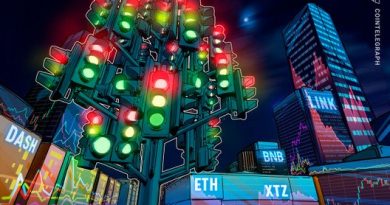Tim Draper: Tokenize Masterpieces to Disrupt the Art Auction Duopoly
Venture capitalist and Bitcoin investor Tim Draper believes that blockchain technology is driving much-needed disruption in the art industry.
Famed Silicon Valley and crypto investor Tim Draper believes that distributed ledger technology is transforming the art industry.
Speaking to Cointelegraph, Draper emphasized the benefits that many of the core utilities of DLT offer to the art sector, such as immutability, transparency, and traceability:
“People are going to be able to tokenize their art, and that will make buyers of art more secure in their purchase decision, and make artists happier about knowing where their art is and who owns it.”
Fractional ownership disrupts art industry
Draper also noted the emergence of “a cottage industry growing for people to own shares in masterpieces and have it stored or ‘rented’ by people who want to put it on display but can’t afford to buy it outright.”
The investor predicts that DLT will drive a revolution in how art is bought and sold, emphasizing the potential for greater decentralization to upend the long standing hierarchy in the art industry.
“I suspect that Sotheby’s and Christie’s have had their duopoly long enough, and now there is an opportunity for an upstart to break into the art world with a new approach around the blockchain,” he said.
“Blockchain will make art trading more flexible and more secure.”
Charity art auction for COVID019
On June 25, Draper delivered a keynote address for Art&Co, the world’s largest online auction in support of COVID-19, on the subject of the intersection between art and DLT.
“It’s a partnership made in heaven,” said Draper. “Artwork needs a trail of its provenance and blockchain is inherently an immutable record-keeping system.”
More than 240 artworks were auctioned through Art&Co, with the funds shared between seven registered charities and 42 artists. The auction took in $2.07 million, with the individual artworks selling from $1,250 to $45,000.
The works comprised a curated collection addressing themes pertinent to the COVID-19 outbreak, including depression, health, and community.




